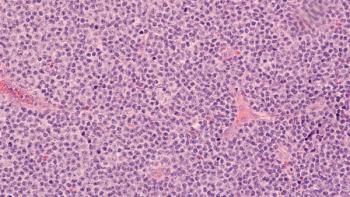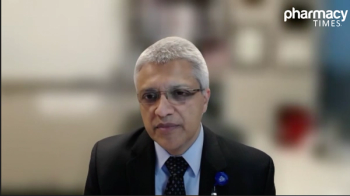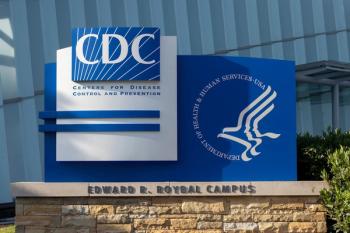
FDA removes REMS for CAR T-cell therapies, enhancing patient access while ensuring safety in cancer treatment.

FDA removes REMS for CAR T-cell therapies, enhancing patient access while ensuring safety in cancer treatment.

Pulmonary hypertension significantly increases the risk of disease progression and cardiovascular events in patients with myelofibrosis, emphasizing a need for routine screening.

Ropeginterferon alfa-2b shows promising results in treating preprimary myelofibrosis, enhancing clinical responses and safety in patients.

Christopher Danes, PhD, discusses how discrete choice experiment data reveal key differences in patient and caregiver treatment preferences for ALK-positive (ALK+) non–small cell lung cancer (NSCLC) and how pharmacists can use these insights to guide shared decision-making, optimize supportive care, and personalize adherence strategies.

Across 3 different manufacturing lots, V116 (21-valent pneumococcal conjugate vaccine) demonstrated consistent immunogenicity and efficacy against S pneumoniae, which causes pneumococcal diseases.

Gayathri Namasivayam, PhD, discusses how large language models are being used to extract structured oncology data from unstructured electronic health records to improve clinical efficiency, support real-world evidence generation, and enhance oncology pharmacy workflows.

A recent study reveals high RSV antibody levels in older adults, highlighting the importance of vaccination and natural infection for enhanced immunity.

Gianni Scappaticci, PharmD, BCOP, discusses key considerations in therapy selection, limitations of current treatments, and the evolving role of pharmacists in managing chronic graft-vs-host disease (cGVHD) through patient education, adherence support, and integration of emerging therapies.

The FDA approves emapalumab-lzsg as the first treatment for macrophage activation syndrome in Still disease, offering a new treatment approach for patients with the rare condition.

INCB057643 shows promise in treating myelofibrosis, enhancing anemia and symptom relief.

As compounded medications gain popularity amid drug shortages, concerns about safety, quality, and regulation have intensified, making Pharmacy Compounding Accreditation Board (PCAB) accreditation a safeguard for consistency, oversight, and public trust in compounding pharmacy practices.



The agent continues to show promising clinical benefit despite being pulled from the market in 2023.

With the Advisory Committee on Immunization Practices recommending that adults receive thimerosal-free influenza vaccines, the preservative that was phased out of most childhood vaccines in 2001 has reentered the public eye.


The FDA approved acalabrutinib as a frontline option for untreated mantle cell lymphoma.

Intravenous immunoglobulin (IVIG) use over an extended period in patients with chronic inflammatory demyelinating polyneuropathy (CIDP) was potentially associated with a reduced incidence of cancer over time, although more research is necessary.

Some patients incorrectly believe that biosimilars compromise safety or efficacy.


Psychedelic treatments may ease cancer distress at various stages of the care journey.

A groundbreaking trial shows zimislecel significantly reduces insulin dependence in patients with type 1 diabetes, offering hope for a functional cure.

Shaji Kumar, MD, shares data and insights from the phase 2 RedirecTT-1 study.

Explore how community pharmacies enhance care for diverse patients with disabilities, addressing barriers and improving accessibility in pharmacy services.

The Advisory Committee on Immunization Practices (ACIP) voted 5-1, with 1 voter abstaining, to recommend that adults receive seasonal influenza vaccines that do not contain the preservative thimerosal.

Megan Ehret, PharmD, MS, BCPP, FAAPP, discusses the clinical benefits of long-acting injectables for treating alcohol use disorder and psychiatric conditions, highlighting the pharmacist’s role in improving adherence, addressing stigma, and expanding access to care.

Explore the latest FDA-approved novel drugs transforming treatment options for various conditions, enhancing patient care and outcomes in community and specialty pharmacy.

Amyvid is used for brain imaging to estimate amyloid plaque density in patients with cognitive impairment undergoing evaluation for Alzheimer disease.

SGLT2 inhibitors improve diabetes management but may cause erythrocytosis without increasing blood clot risks, highlighting the need for careful monitoring.